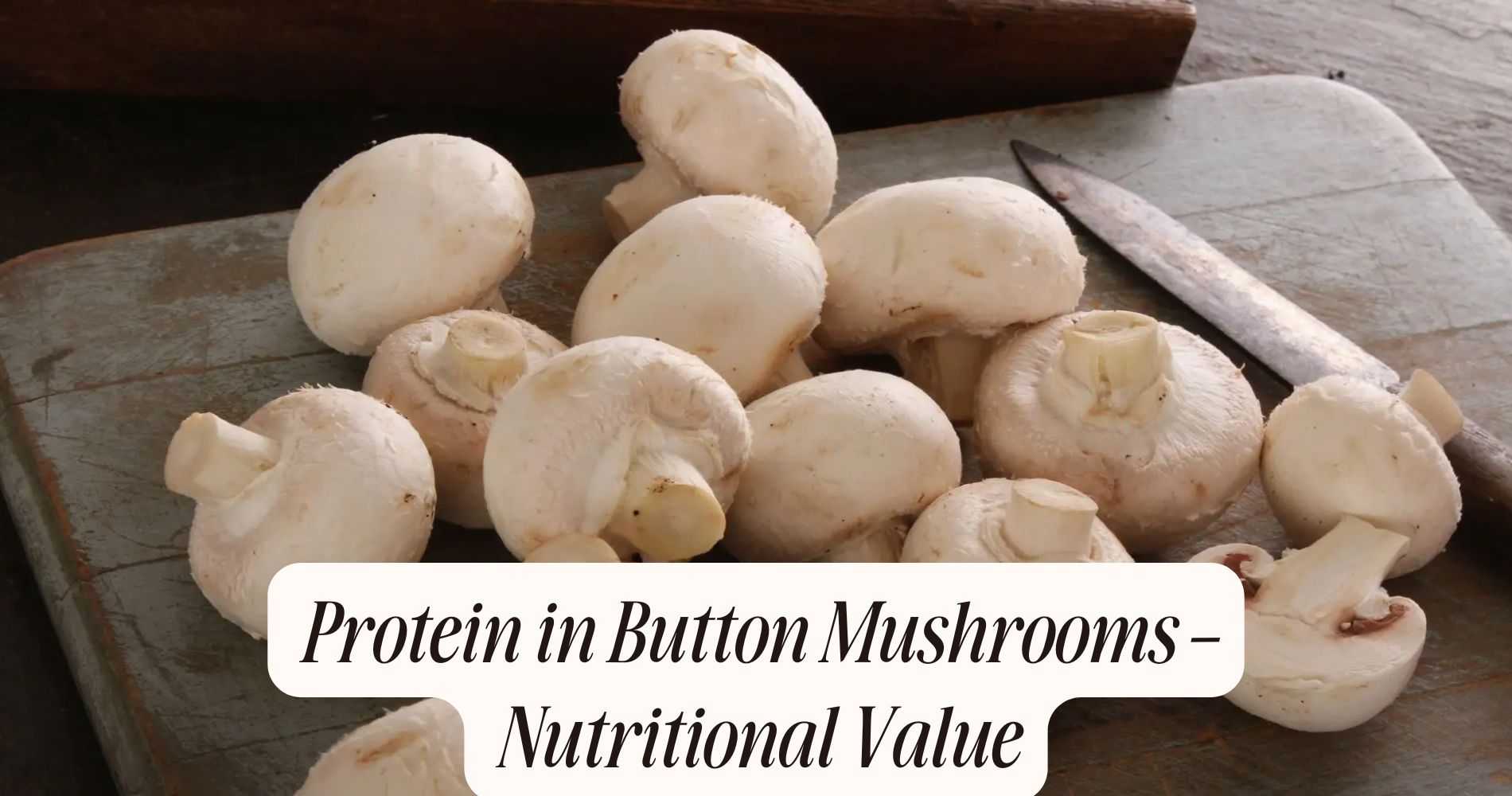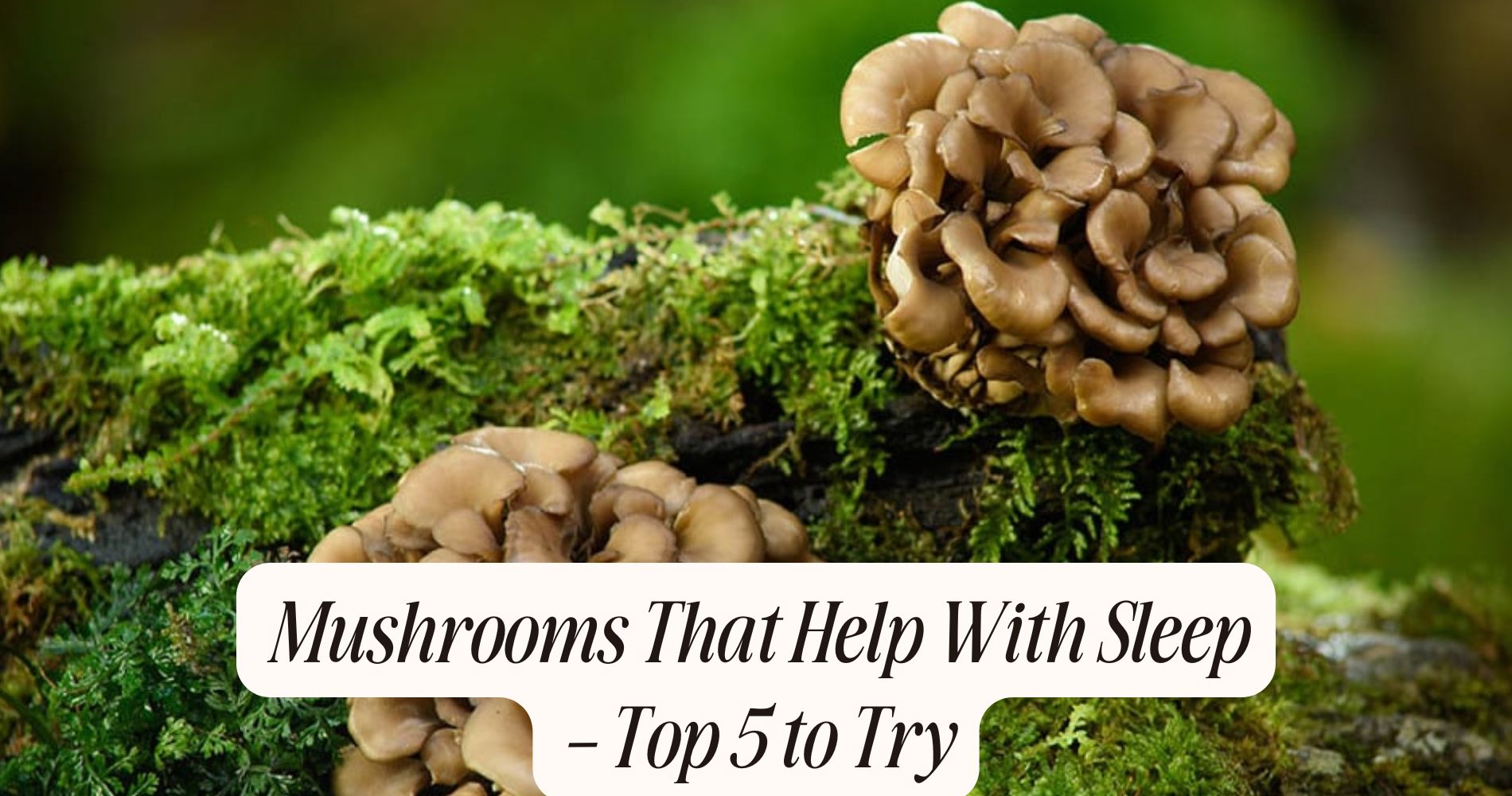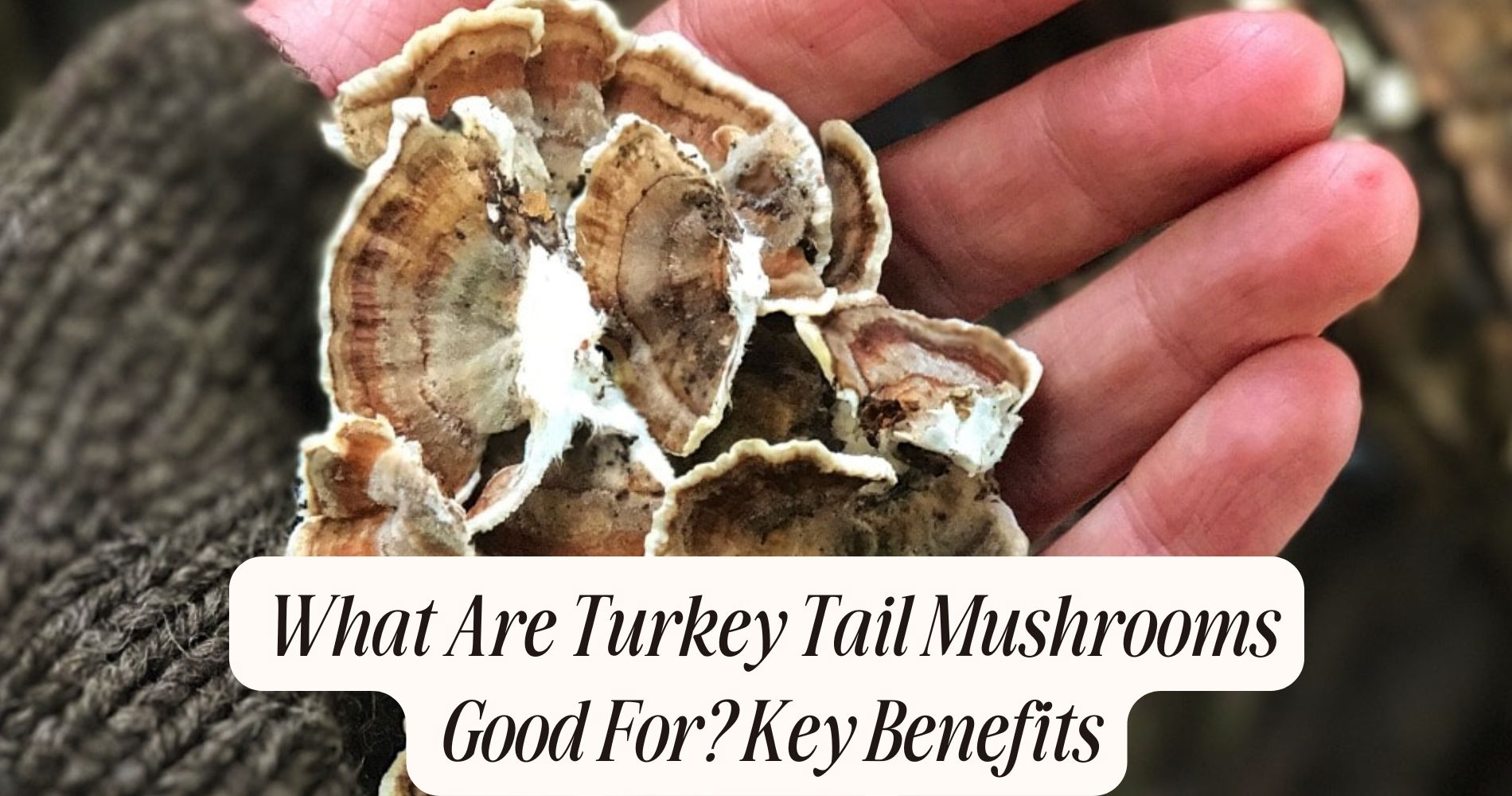
Protein in Button Mushrooms – Nutritional Value
The protein in button mushrooms may not rival that of beans or meat, but these fungi still offer around 3 grams of plant-based protein per 100 grams. While they aren't a high-protein substitute, button mushrooms are low in calories and rich in essential nutrients like B vitamins, selenium, and fiber. They make a healthy, versatile addition to salads, stir-fries, or soups. Dive deeper to discover how the nutritional value of button mushrooms goes far beyond just protein!
Protein Content of Button Mushrooms per Serving
Although button mushrooms mightn't be the first food you think of for protein, they do provide a modest amount per serving. In a standard 100-gram portion of raw button mushrooms, you’ll get about 3 grams of protein. This makes them a reasonable option if you’re looking to add plant-based protein to your meals, especially when combined with other sources.

The protein in button mushrooms includes a variety of mushroom amino acids, contributing to your overall amino acid intake. While mushrooms don’t offer as much protein as legumes or soy, they can still support a balanced diet.
Their low calorie content means you can add volume to your meals without excess energy. Consider mushrooms a useful supplement to a diverse, nutrient-rich eating pattern.
How Button Mushrooms Compare to Other Protein Sources
You’ve seen that button mushrooms offer about 3 grams of protein per 100 grams, but how does that stack up against other foods in your diet? Compared to animal-based sources like chicken or eggs, which deliver 20–30 grams per 100 grams, button mushrooms are relatively modest in protein content.
Plant-based proteins, such as lentils and beans, also surpass mushrooms, typically providing 7–9 grams per 100 grams. However, if you’re looking for a low-calorie, nutrient-dense option with distinctive mushroom flavor profiles, button mushrooms stand out.
Advances in cultivation techniques have made mushrooms more accessible and affordable, letting you enjoy their unique taste and texture as a protein-boosting addition rather than a primary source. They fit well in a balanced, varied diet.
Health Benefits Beyond Protein
While button mushrooms aren’t a protein powerhouse, they deliver a wealth of other nutrients that support overall health. You’ll find B vitamins like riboflavin and niacin, which help your body convert food into energy.
Button mushrooms also offer selenium and copper, two minerals essential for a healthy immune system and antioxidant defenses. In addition, these mushrooms contain unique fungal phytochemicals, including polysaccharides that have been studied for their potential role in immune modulation.

Scientific evidence suggests these compounds may help balance your immune response and reduce inflammation. Button mushrooms are also low in calories and fat, making them a nutrient-dense choice for many diets.
Tips for Adding Button Mushrooms to Your Diet
Adding button mushrooms to your meals is a simple way to boost nutrient intake and enjoy their unique flavors. You’ll benefit from their protein content, B vitamins, and minerals.
Thanks to modern mushroom cultivation, fresh button mushrooms are widely available year-round, making it easy to add them to your diet regularly. Slice them raw into salads for a low-calorie, crunchy texture, or sauté them with minimal oil to retain their nutrients.
Try adding them to omelets, stir-fries, or soups for added flavor and protein. Consider roasting or grilling to enhance their umami taste.
If you’re new to cooking techniques with mushrooms, start with simple recipes to appreciate their versatility. With mindful preparation, you’ll maximize both taste and nutritional value.
Common Myths About Mushroom Protein
Although button mushrooms are a popular choice for plant-based meals, several misconceptions circulate about their protein content. One common protein misconception is that mushrooms are a high-protein substitute for meat. In reality, button mushrooms contain about 3 grams of protein per 100 grams, which is considerably less than most animal sources.

Another myth suggests mushroom protein is “complete” like animal proteins. While mushrooms do provide all essential amino acids, the levels of some, such as lysine and methionine, are quite low.
Myth busting these beliefs helps you make informed dietary choices. Button mushrooms can complement your protein intake, but you shouldn’t rely on them as your primary source. Instead, combine them with legumes, grains, or nuts for a balanced, nutrient-rich plant-based diet.
A Protein-Packed Alternative: SUPER MUSHROOM GUMMIES
While protein in button mushrooms can add value to your diet, there’s a more convenient way to enjoy the benefits of multiple mushrooms—Well Gummies' SUPER MUSHROOM GUMMIES! These tasty, chewable gummies combine 10 functional mushrooms to fuel your brain, boost energy, and support immunity. Made from vegan ingredients, they deliver calmer energy and sharper focus without the hassle of cooking. Plus, the wild berry flavor tastes just like your favorite candy—no jitters, no crash. Keep your body balanced and your mind clear with Well Gummies!
Frequently Asked Questions
Are Button Mushrooms Safe for People With Mushroom Allergies?
If you have a mushroom allergy, you shouldn't eat button mushrooms. Allergen cross reactivity means your immune system might react to different mushroom species. It's best to consult an allergist before trying any mushrooms, including button mushrooms.
Can Button Mushrooms Be Eaten Raw or Should They Be Cooked?
You can try raw consumption of button mushrooms, but cooking methods like sautéing or steaming enhance digestibility and reduce potential toxins. Evidence suggests both options offer nutrients, but cooking may make certain vitamins and minerals more bioavailable.
How Should Button Mushrooms Be Stored to Maintain Freshness?
To maximize storage longevity, store button mushrooms in the refrigerator, ideally in a paper bag to reduce moisture buildup. Evidence shows this refrigeration tip preserves nutrients and texture, keeping mushrooms fresh and nutrient-rich for up to one week.
Do Button Mushrooms Contain Any Essential Vitamins or Minerals?
You’ll benefit from button mushrooms’ impressive vitamin content, including B vitamins and vitamin D. Their mineral profile features potassium, selenium, and copper. Evidence shows they’re a nutrient-rich addition to your diet, supporting overall health in a balanced way.
Are There Any Environmental Concerns With Cultivating Button Mushrooms?
When you cultivate button mushrooms, you should consider environmental concerns like energy use and waste. By supporting sustainable farming and effective pollution control, you help reduce water, land, and chemical impacts while ensuring a more nutrient-focused food system.
Conclusion
When you add button mushrooms to your meals, you’re getting a modest protein boost—about 3 grams per cup cooked. While they can’t replace high-protein foods like meat or beans, they offer valuable nutrients, fiber, and antioxidants. Don’t rely on mushrooms alone for protein, but enjoy them as a delicious, nutritious addition to a balanced diet. By including a variety of protein sources, you’ll support your health and get the most out of your meals.




